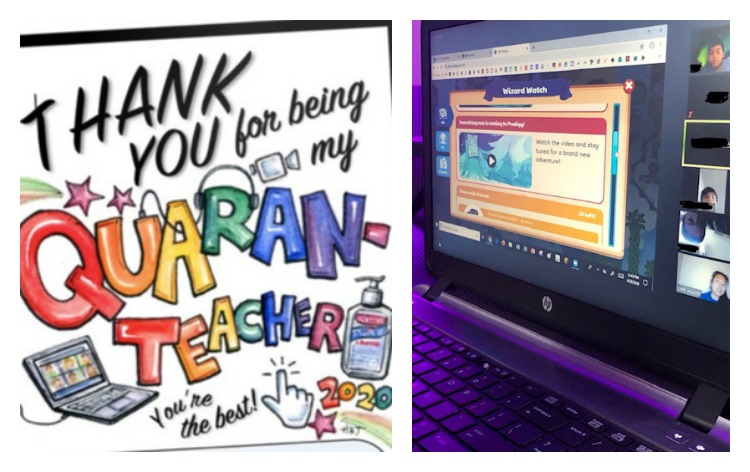Unprecedented events happen fast, processing how we’re dealing with them gets thrown out the door when we kick into survival mode. That’s how I felt in March, when my day-to-day life came to a halt due to COVID-19. The same week we went into quarantine, I became a full-time online college student, worked my professional job from home, had lunch lady duties, and tried my best to develop a remote learning routine for my 9 year old son. To top if off, I’m a single mommy, with all the head-of-household duties. I was definitely dealing with anxiety about this new routine, and a deadly enemy I couldn’t see.
By week three I was losing my mind. The pressure was overwhelming: I felt like I was doing a horrible job at everything. Not only was I worried about myself and our household, I was worried about my mom. She wasn’t taking the pandemic seriously at first (like many of our elders) and wasn’t taking the necessary precautions to protect herself and home. I called to check on her daily, and tried to help with grocery trips. In this new normal, I did what so many of us women do – I took on too much, too fast. It was a recipe for disaster.
The stress took a toll on my immune system. I got a head cold along with a blistering rash on my face and neck. Being unable to see a doctor made me even more anxious, but it was then I decided I had to take control. I began taking time for self-care, which included positive self-talk, medicine, and plenty of rest. The clouds parted. My cold went away. The rash is begining to go away now.
More changes came during week three, including things shifting with my son’s daily curriculum. He went from working from a paper packet, to learning online. We were able to pick up a laptop from his school, and received a distant learning plan from the district and his teacher. The district plan didn’t happen overnight, but I’m grateful it happened. My son’s teacher really owned her role as an educator once distant learning was put in place. She engaged the families on email, and class dojo. Her actions gave me a peace of mind; she was communicating her commitment to our class.
She’s continued to send weekly progress reports, schedule zoom meetings four times per week with 1-2 hours of instruction, encourages the class to set up their own zoom socials, uses google classrooms to communicate during weekdays, provides the students feedback on their completed assignments, and is trying her best. I appreciate her and I’ve thanked her every chance I get. Having her support has been tremendous help for my son and I. Winging it, with the world on my shoulders, wasn’t very healthy for me.
My son immediately noticed the difference. One day he said, “Mom, you are doing a good job now. I think you got this homeschool thing under control.” I made a point to give Ms. Huynh the credit she deserved, and told him with Ms. Huynh’s support, it took the edge off trying to come up with a productive daily schedule. He also said he liked their check-ins, because everyone is able to talk about their feelings. Last week I walked in his room while they were on zoom, and I could hear the students tell Ms. Huynh, “we miss you and want to return to school.” It broke my heart. She listened empathetically, and said she missed them too.
I know she, along with all educators, are feeling a lot of the same things I was dealing with regarding their own children and families. I know it’s a lot to handle, but I also know not all educators are connecting with their students, as some districts can’t make it mandatory. Ms. Huynh is not required to do what she is doing; the district requires educators to set up a student curriculum, send weekly reports, and communicate via email/class dojo. They are not required to connect via zoom and conduct instruction. But Ms. Huynh is doing it because she is committed to her students, and wants them to continue learning.
While I only have one child at home, I felt overwhelmed before Ms. Huynh’s help. I can’t imagine having two or more school-aged children home without an educator’s support. Think about all the parents who are essential workers, and can’t be present daily. Or parents who speak Spanish only, and are not tech savvy. How will they help their kids not fall behind on assignments, without educators’ support?
Committed educators are essential to students and families during this difficult time. Even though it’s not a district/school requirement, I thank all educators stepping up to the plate.

